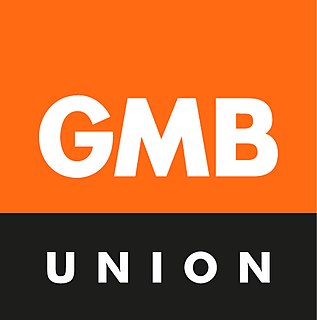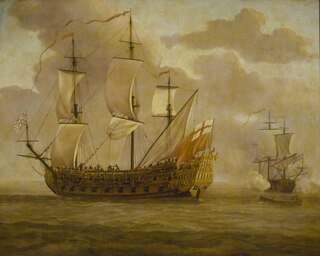Related Research Articles

Woolwich is a district in southeast London, England, within the Royal Borough of Greenwich.

Woolwich is a town in Sagadahoc County, Maine, United States. The population was 3,072 at the 2010 census. It is part of the Portland–South Portland–Biddeford, Maine metropolitan statistical area. Woolwich is a suburb of the city of Bath located on the opposite shore of Merrymeeting Bay.
In British politics, an affiliated trade union is one that is linked to the Labour Party. The party was created by the trade unions and socialist societies in 1900 as the Labour Representation Committee and the unions have retained close institutional links with it.

The GMB is a general trade union in the United Kingdom which has more than 631,000 members. Its members work in nearly all industrial sectors, in retail, security, schools, distribution, the utilities, social care, the National Health Service (NHS), ambulance service and local government.

The Royal Arsenal, Woolwich carried out armaments manufacture, ammunition proofing, and explosives research for the British armed forces at a site on the south bank of the River Thames in Woolwich in south-east London, England, United Kingdom. It was originally known as the Woolwich Warren, having begun on land previously used as a domestic warren in the grounds of a Tudor house, Tower Place. Much of the initial history of the site is linked with that of the Office of Ordnance, which purchased the Warren in the late 17th century in order to expand an earlier base at Gun Wharf in Woolwich Dockyard. Over the next two centuries, as operations grew and innovations were pursued, the site expanded massively; at the time of the First World War the Arsenal covered 1,285 acres (520 ha) and employed close to 80,000 people. Thereafter its operations were scaled down; it finally closed as a factory in 1967 and the Ministry of Defence moved out in 1994. Today the area, so long a secret enclave, is open to the public and is being redeveloped for housing and community use.

The University of Greenwich is a public university located in London and Kent, United Kingdom. Previous names include Woolwich Polytechnic and Thames Polytechnic.

The Royal Army Ordnance Corps (RAOC) was a corps of the British Army. At its renaming as a Royal Corps in 1918 it was both a supply and repair corps. In the supply area it had responsibility for weapons, armoured vehicles and other military equipment, ammunition and clothing and certain minor functions such as laundry, mobile baths and photography. The RAOC was also responsible for a major element of the repair of Army equipment. In 1942 the latter function was transferred to the Royal Electrical and Mechanical Engineers (REME) and the vehicle storage and spares responsibilities of the Royal Army Service Corps were in turn passed over to the RAOC. The RAOC retained repair responsibilities for ammunition, clothing and certain ranges of general stores. In 1964 the McLeod Reorganisation of Army Logistics resulted in the RAOC absorbing petroleum, rations and accommodation stores functions from the Royal Army Service Corps as well as the Army Fire Service, barrack services, sponsorship of NAAFI (EFI) and the management of staff clerks from the same Corps. On 5 April 1993, the RAOC was one of the corps that amalgamated to form The Royal Logistic Corps (RLC).
Sir William Arthur Steward was a British Conservative party politician, who served as Member of Parliament for Woolwich West from 1950 to 1959.

The Modern Records Centre (MRC) is the specialist archive service of the University of Warwick in Coventry, England, located adjacent to the Central Campus Library. It was established in October 1973 and holds the world's largest archive collection on British industrial relations, as well as archives relating to many other aspects of British social, political and economic history.

The General Federation of Trade Unions (GFTU) is a national trade union centre in the United Kingdom. It has 35 affiliates with a membership of just over 214,000 and describes itself as the "federation for specialist unions".

HMS Woolwich was a 54-gun fourth rate ship of the line of the Royal Navy, built by Phineas Pett III at Woolwich Dockyard and launched in 1675. She underwent a rebuild in 1702.

The Woolwich East by-election, 1921 was a parliamentary by-election held on 2 March 1921 for the British House of Commons constituency of Woolwich East, in the Metropolitan Borough of Woolwich in London.
The Diageo Staff Association was a small trade union in the United Kingdom.

Woolwich, also known as Woolwich St Mary, was an ancient parish containing the town of Woolwich on the south bank of the Thames and North Woolwich on the north bank. The parish was governed by its vestry from the 16th century to 1852, based in the Church of St Mary until 1842, after which in the purpose-built Woolwich Town Hall. The parish adopted the Public Health Act 1848 and was governed by the Woolwich Local Board of Health from 1852. When the parish became part of the district of the Metropolitan Board of Works in 1855 the local board was treated as if it were an incorporated vestry. It was in the county of Kent until it was transferred to London in 1889. In 1900 it was amalgamated with other parishes to form the Metropolitan Borough of Woolwich and had only nominal existence until it was abolished as a civil parish in 1930. Since 1965 it has been split between the Royal Borough of Greenwich and the London Borough of Newham.

William Harold Hutchinson was a British trade unionist and Labour Party activist.

Hugh Hartley Lawrie was a British trade unionist and politician, elected as Labour MP for Stalybridge and Hyde from 1929 to 1931.

The Cockatoo Island ferry service, officially known as F8 Cockatoo Island, is a commuter ferry service in Sydney, New South Wales. Part of the Sydney Ferries network, it is operated by Transdev Sydney Ferries and services the Balmain Peninsula, Greenwich, Woolwich, and Cockatoo Island areas of Sydney Harbour. Consisting six stops, the service partially traverses the former Balmain / Woolwich ferry service, which operated from 1992 to 2013. The service was introduced on 26 November 2017, as part of timetable changes across the Transport for NSW network in 2017. It replaced the Woolwich stopping pattern on the F3 Parramatta River service.
Albert Frederick Papworth, often known as Pappy, was a British trade unionist. A leader of several strikes, he later became the first communist to serve on the General Council of the Trades Union Congress.
Robert Banner was a Scottish socialist politician and trade unionist.
References
- ↑ Arthur Marsh and John B. Smethurst, Historical Directory of Trade Unions, vol.5, p.287